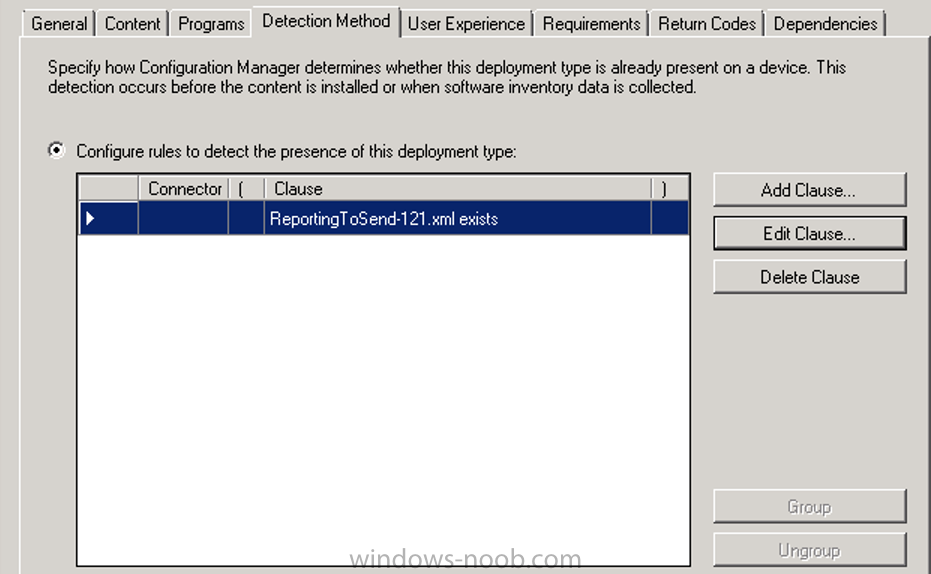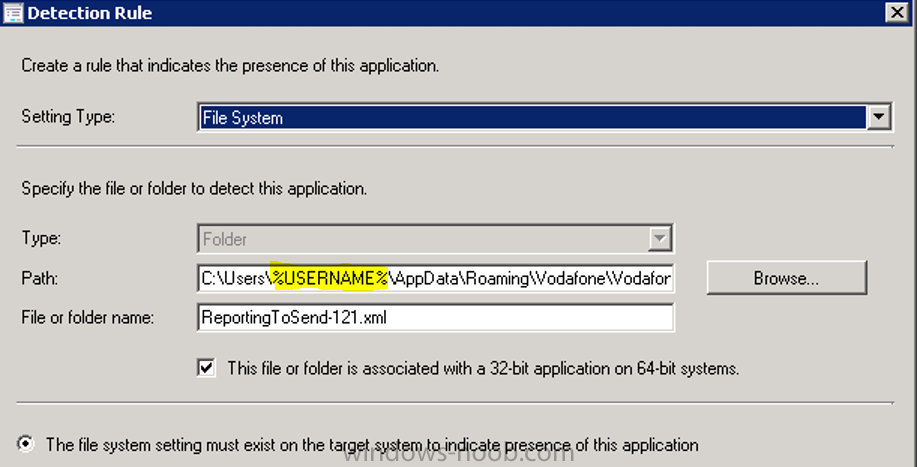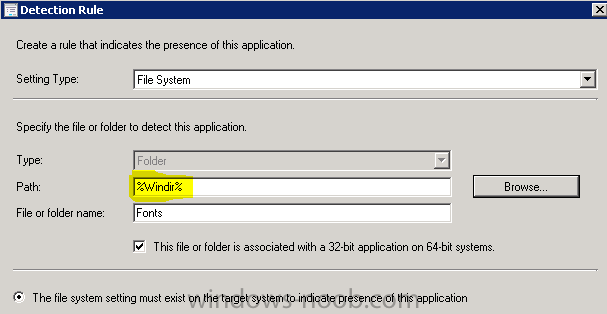Search the Community
Showing results for tags 'detection method'.
-
I'm trying to use a PowerShell script to verify the installation of an application deployment, but so far it hasn't worked well. I've never had any issues with the detection rules, but I'm quite new to SCCM, and this is the first time I'm using PowerShell to do it. The application is deployed to...
-
Create a detection rule using the user variable
cravion posted a topic in Configuration Manager 2012
Hi, I work with SCCM 2012 SP1 and I would like to create an application that deploy files in the user profile. However, I'm stuck on the detection method because I can not use the variable %USERPROFILE% or %USERNAME%. (view picture 1 and 2) However, SCCM knows other variables such as "%windir...- 7 replies
-
- detection method
- sccm variables
- (and 3 more)
-
Office 2010 installed, but not detected by SCCM
Aurock posted a question in Troubleshooting, Tools, Hints and Tips
I recently discovered that an outlook plugin I push out as an application through SCCM wasn't getting installed on some computers. Upon further investigation, I found that the deployment listed these computers as not meeting requirements. The requirement missing is listed as "Microsoft Office". T...




